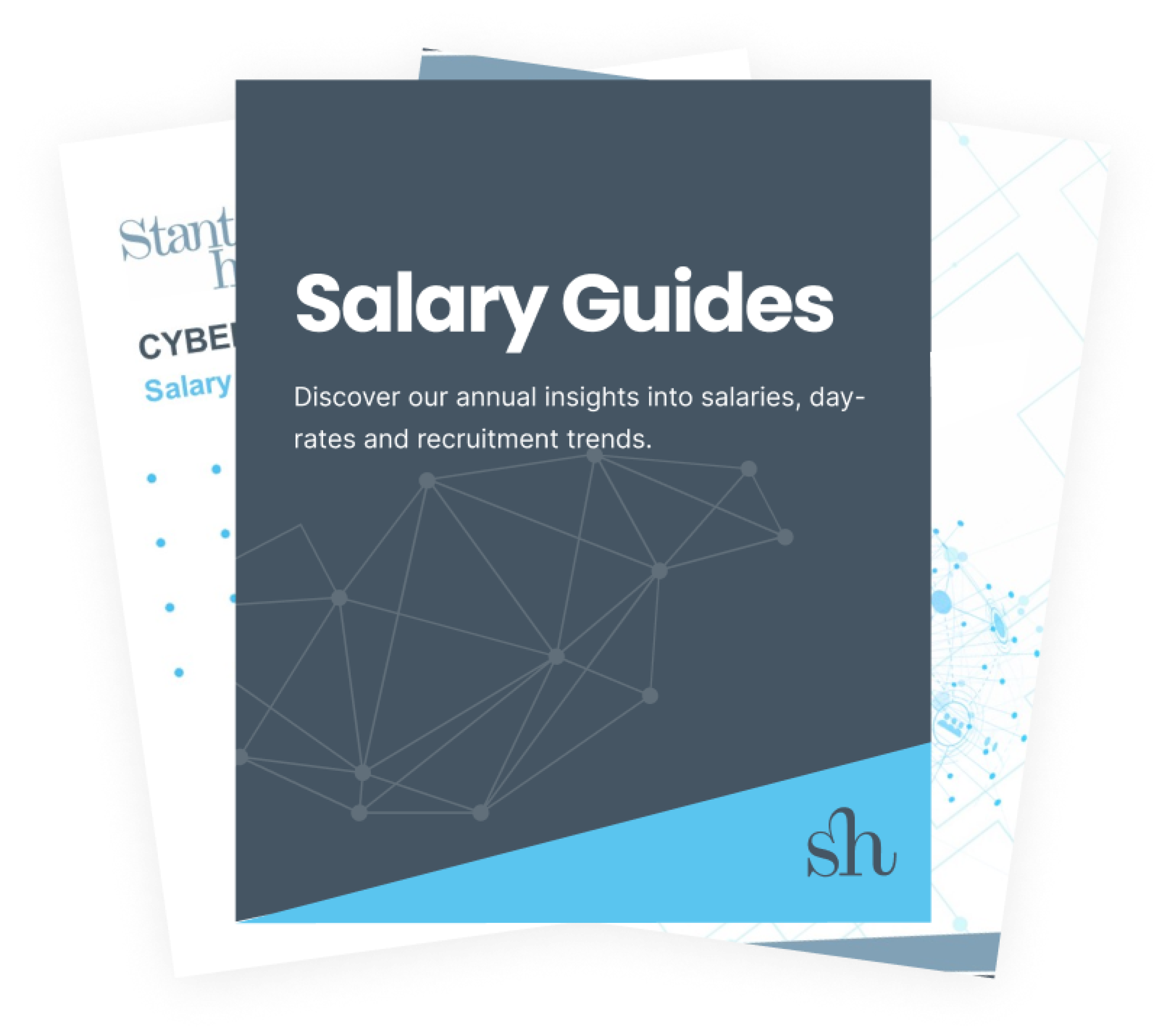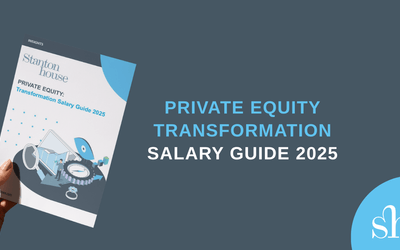
Beyond Well-being Washing: The Importance of Psychological Safety at Work
As we approach World Mental Health Day on October 10th, this year’s theme, ‘It’s time to prioritise mental health in the workplace’, couldn’t be more relevant. At Stanton House, where I work as an Office and Onboarding Coordinator within the People team, discussions about boosting well-being and supporting mental health are a regular part of our work.
From small gestures like offering free fruit and celebrating diversity awareness days, to more impactful policies like flexible working and the option to work from anywhere, we are constantly exploring ways to prioritise the mental health of our employees.
However, it’s important to recognise that not all companies are as genuine in their efforts.
What is ‘well-being washing’?
During my research into mental health initiatives, I’ve noticed a troubling trend: many companies work hard to appear as though they care about their employees’ well-being, but the reality often tells a different story. A quick glance at their Glassdoor reviews can reveal a disconnect between the company’s public image and the actual employee experience.
This phenomenon, known as ‘well-being washing’, is becoming more common as organisations feel pressured to demonstrate that they care without making real, meaningful changes.
The reality is employee mental health struggles are widespread and serious.
The reality of mental health struggles
A 2024 study of 2,000 UK adults found that over 1 in 7 report their mental health as either bad or the worst it’s ever been. Alarmingly, women are more affected than men (18.5% of women vs. 12.5% of men), and nearly a quarter (23.5%) of young people aged 16-24 describe their mental health as severely impacted. In the UK alone:
· Someone searches for ‘how to reduce stress’ every 10 minutes
· 7,100 searches are made each month for ‘anxiety treatment’
· 12,100 searches are conducted for ‘mental health helpline’
These statistics highlight the harsh reality of the mental health crisis gripping the UK. This issue isn’t isolated to the UK - it’s a global crisis. The World Health Organisation (WHO) reports that:
· The global economy loses more than US$ 1 trillion per year due to depression and anxiety
· Depression affects 264 million people worldwide
· People with severe mental conditions die 10-20 years earlier than the general population
· In low- and middle-income countries, between 76% and 85% of people with mental health conditions receive no treatment
· Globally, there is less than 1 mental health professional for every 10,000 people
So, the numbers show that it’s not a matter employers can ignore and underscores why it’s so important that employers go beyond surface-level initiatives.
The first step is acknowledging the depth of the crisis, and the role employers play in addressing it. One way to make a lasting impact on our employees' well-being, fostering a culture where they feel seen, supported, and valued is by cultivating an environment of psychological safety.
How psychological safety drives employee wellbeing & success
Coined by Harvard professor Amy Edmondson, psychological safety refers to an environment where individuals feel safe to take interpersonal risks - such as voicing concerns, sharing ideas, or admitting mistakes - without fear of negative repercussions. Research consistently demonstrates that psychologically safe workplaces directly contribute to employee well-being and overall business success.
A 2020 study published in The Lancet found that poor mental health costs the global economy $1 trillion annually in lost productivity, while organisations that foster psychological safety see marked improvements in performance, innovation, and retention. Google’s own Project Aristotle, a multi-year study of high-performing teams, identified psychological safety as the number one predictor of team success. In environments where employees feel safe to speak up, teams are more likely to innovate, solve complex problems, and collaborate effectively.
Psychological safety also plays a critical role in reducing workplace stress and supporting mental health. A Harvard Business Review study reported that employees who feel psychologically safe experience less anxiety and are 27% more likely to report job satisfaction. The ability to express concerns without fear fosters a sense of trust and inclusion, which in turn promotes well-being. This is particularly important given that mental health issues are now one of the leading causes of absenteeism in the workplace, costing employers millions in lost productivity.
From an employer’s perspective, the benefits of creating a psychologically safe environment go far beyond employee well-being. Companies that prioritise this aspect of workplace culture see improved employee engagement, higher retention rates, and increased innovation. According to a Gallup study, teams that feel psychologically safe are 12% more productive and generate 20% more revenue than those that do not. Moreover, psychologically safe workplaces are more resilient, as employees feel empowered to voice concerns and address issues before they escalate.
In my home country of Australia, psychological safety has even been integrated into workplace legislation through the Work Health and Safety Act, which requires employers to address psychosocial hazards. This legal recognition underscores the critical role psychological safety plays in protecting employees’ mental health and ensuring business sustainability.
How to build psychological safety in the workplace
Here are some actionable steps leaders can take to build psychological safety in the workplace:
· Promote a Growth Mindset: I love the acronym F.A.I.L – ‘First Attempt In Learning’. This concept encourages the idea that failure is a part of growth, which has been proven effective in both educational and business settings. Leaders should emphasise that it's okay to make mistakes, as long as lessons are learned and improvements follow. Research from Carol Dweck on the growth mindset shows that this approach increases resilience, innovation, and willingness to take on challenges, which is crucial for psychological safety.
· Demonstrate Vulnerability as a Leader: Leaders must model vulnerability by openly admitting mistakes and imperfections. Research from Brené Brown demonstrates that vulnerability in leadership fosters trust and opens the door for more meaningful communication. When leaders show that they are fallible, it encourages employees to feel safe sharing their own challenges and uncertainties, building a foundation of mutual trust.
· Align Company Values with Behaviours: It’s common for companies to have values, but those values must be backed by clear behaviours and expectations. Employees need to understand how to live by the company’s values in their daily actions, and leadership must hold everyone accountable. For example, if transparency is a core value, leadership must model open communication and provide avenues for employees to share feedback without fear of retribution.
· Reduce Stigma Around Mental Health: To truly create a psychologically safe environment, taboo topics such as mental health must be destigmatised. Leaders can implement initiatives like our ‘Stanton House Empathy Series’ to encourage open discussions about mental health challenges. A 2022 Deloitte report revealed that employers who invest in mental health support see a return of about £4.70 for every £1 spent, indicating a strong business case for supporting mental health in the workplace. This aligns with a broader post-pandemic trend where employee expectations around mental health support have increased.
· Encourage Constructive Challenge & Feedback: A psychologically safe workplace allows for open and transparent discussions, including the ability to challenge ideas without fear. Encourage employees to voice their opinions and concerns, and leaders should be open to being questioned. This cultivates a culture of continuous improvement. According to Google’s Project Aristotle, high-performing teams regularly engage in constructive conflict, which leads to better decision-making and innovation.
· Foster Accountability, Not Blame: Replace a culture of blame with one focused on accountability. When issues arise, focus on solutions rather than placing fault. This encourages employees to take ownership of their work without fear, knowing that mistakes are seen as learning opportunities. A study by The NeuroLeadership Institute found that accountability, when framed positively, strengthens collaboration and innovation in teams.
· Develop Clear Policies for Addressing Poor Behaviour: Psychological safety does not mean the absence of accountability. Create policies that address poor behaviour in a fair and transparent manner, ensuring employees understand the consequences of not adhering to company values. Providing clarity helps foster an environment of trust, where employees know inappropriate actions will be managed consistently and justly.
· Practice Active Listening: Leaders should prioritise regular one-on-one check-ins with their team members, providing a dedicated space to discuss both performance and well-being. Active listening, which involves not just hearing but genuinely understanding employees' concerns, enhances trust and strengthens relationships. Studies from Gallup show that employees who feel heard are 4.6 times more likely to feel empowered to perform their best work.
· Celebrate Successes: Recognising and celebrating individual and team achievements fosters a positive atmosphere. Sharing success stories builds confidence and motivation among employees, encouraging them to continue contributing their best work. According to research from Harvard Business School, companies that regularly celebrate accomplishments see a 31% increase in productivity and a significant rise in employee engagement.
By fostering an environment where employees feel valued, respected, and free to contribute openly, employers not only support mental health but also unlock the full potential of their workforce.
Sources:
· Stanton House Empathy Series
· McKinsey: What is psychological safety?
· Amy. C. Edmondson: Psychological safety
· Deloitte: Let’s talk about psychological safety
· Forthwithlife: Mental health statistic
· WHO: Mental health in the workplace
· Deloitte: Poor mental health costs UK employers 51 billion a year
· Neuroleadership: Your brain at work
· HBR: Creating a happier workplace is possible and worth it
· Inc: Employees who feel heard are 4.6x more likely to feel empowered to do their best work



















